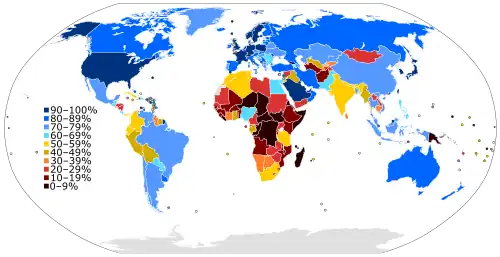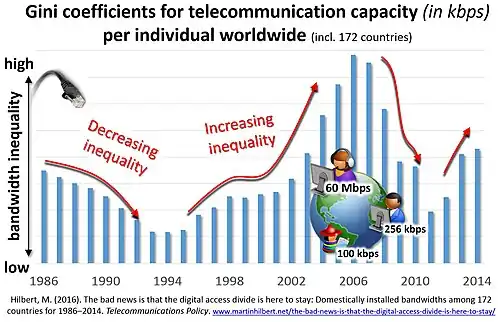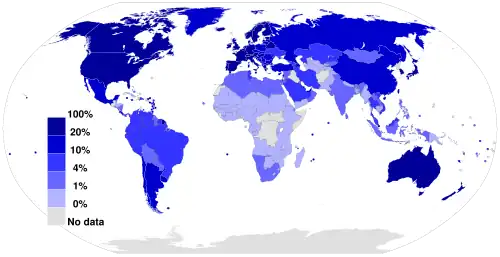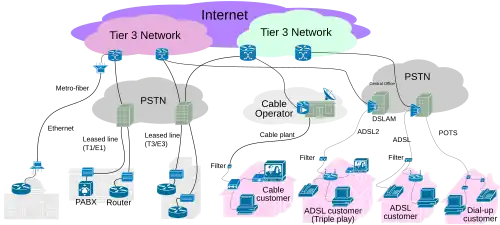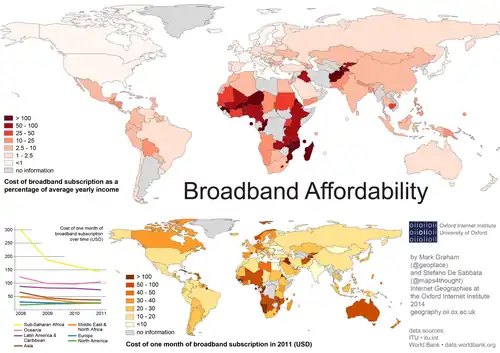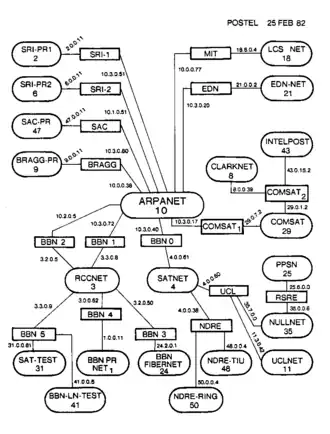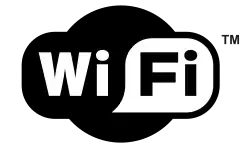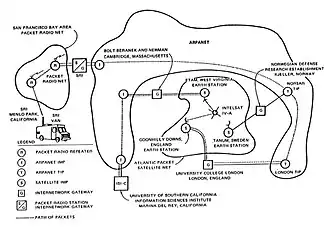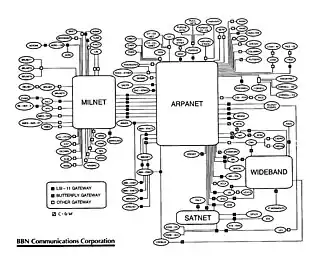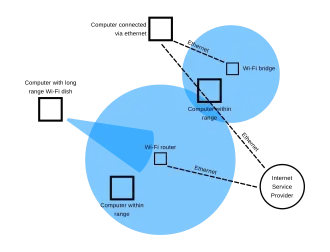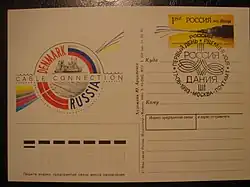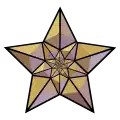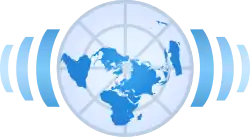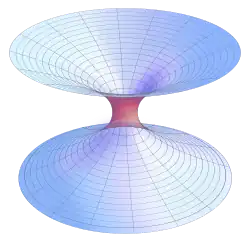Portal:Internet
The Internet PortalThe Internet (or internet) is the global system of interconnected computer networks that uses the Internet protocol suite (TCP/IP) to communicate between networks and devices. It is a network of networks that consists of private, public, academic, business, and government networks of local to global scope, linked by a broad array of electronic, wireless, and optical networking technologies. The Internet carries a vast range of information resources and services, such as the interlinked hypertext documents and applications of the World Wide Web (WWW), electronic mail, internet telephony, streaming media and file sharing. The origins of the Internet date back to research that enabled the time-sharing of computer resources, the development of packet switching in the 1960s and the design of computer networks for data communication. The set of rules (communication protocols) to enable internetworking on the Internet arose from research and development commissioned in the 1970s by the Defense Advanced Research Projects Agency (DARPA) of the United States Department of Defense in collaboration with universities and researchers across the United States and in the United Kingdom and France. The ARPANET initially served as a backbone for the interconnection of regional academic and military networks in the United States to enable resource sharing. The funding of the National Science Foundation Network as a new backbone in the 1980s, as well as private funding for other commercial extensions, encouraged worldwide participation in the development of new networking technologies and the merger of many networks using DARPA's Internet protocol suite. The linking of commercial networks and enterprises by the early 1990s, as well as the advent of the World Wide Web, marked the beginning of the transition to the modern Internet, and generated sustained exponential growth as generations of institutional, personal, and mobile computers were connected to the internetwork. Although the Internet was widely used by academia in the 1980s, the subsequent commercialization of the Internet in the 1990s and beyond incorporated its services and technologies into virtually every aspect of modern life. (Full article...) Selected article
Selected picture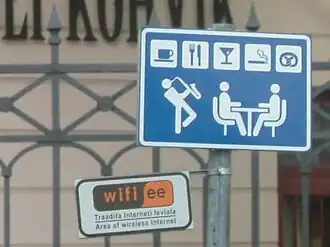 In computer networking, a wireless access point (WAP or AP) is a device that connects wireless communication devices together to form a wireless network. The WAP usually connects to a wired network, and can relay data between wireless devices and wired devices. Several WAPs can link together to form a larger network that allows "roaming". Good Articles -The Wiccan Web: Surfing the Magic on the Internet is a 2001 book by Patricia Telesco and Sirona Knight published by Citadel Press, an imprint of Kensington Publishing. The book focuses on online Wiccan culture in the late 1990s and early 2000s, and is structured as a how-to guide for users new to technology. It discusses topics such as finding Wicca-related websites, interacting with online neopagan communities, and integrating Wiccan spells and rituals with technology. Critical reception for The Wiccan Web was negative. Reviewers described the book as unintentionally comedic, criticising its understanding of neopagan practice, its rewrites of existing Wiccan creeds, and its unusual spells. The book was published during a period of rapid growth of online communities dedicated to new religious movements; it received attention as a summary of neopagan online culture and a symbol of its increasing cultural importance. (Full article...) WikiProjects
Did you know (auto-generated) -
Selected biography
General images -The following are images from various internet-related articles on Wikipedia.
Selected quoteMain topics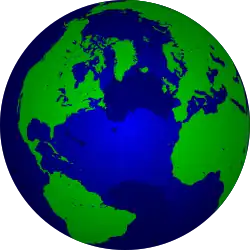
Featured contentCategoriesSelect [►] to view subcategories
Internet Internet by continent Internet by country Internet-related lists Internet access Internet architecture Internet broadcasting Internet culture Internet databases Email Internet events Internet governance History of the Internet Internet hosting Hypermedia Internet Geographic information systems Internet law Online algorithms Internet-related organizations People related to the internet Politics and the Internet Internet security Internet Standards Internet terminology Videotelephony Works about the Internet World Wide Web Internet stubs Related portalsThings you can do
Associated WikimediaThe following Wikimedia Foundation sister projects provide more on this subject:
Wikipedia's portalsDiscover Wikipedia using portals
|
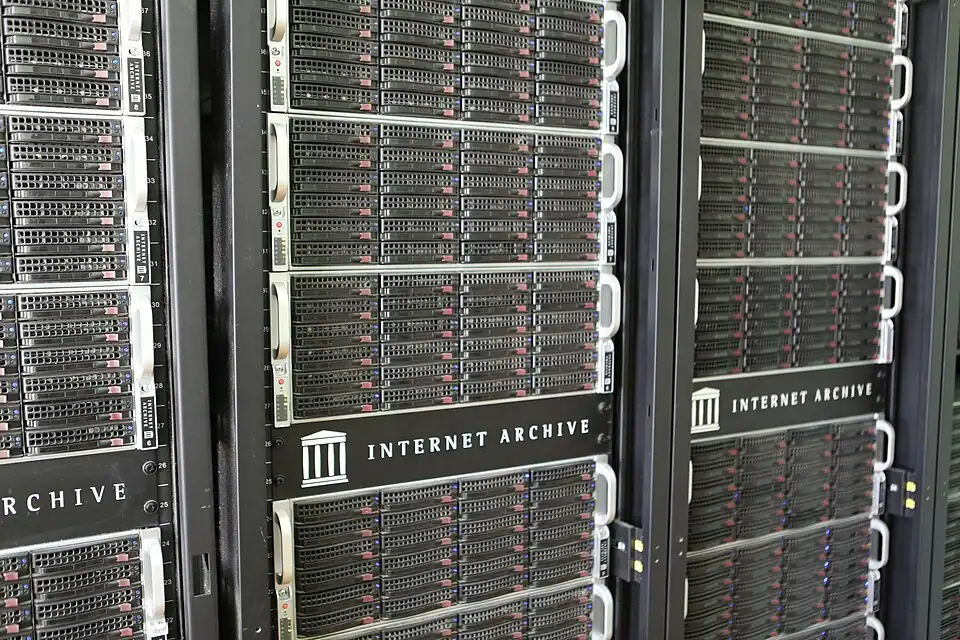


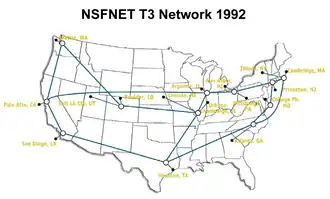
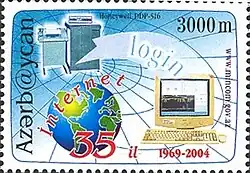
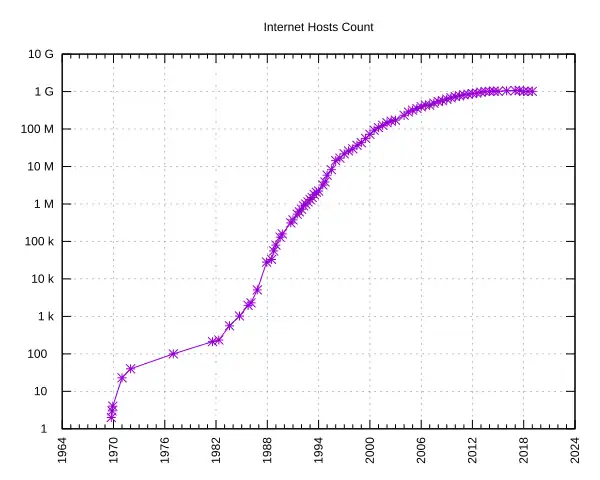
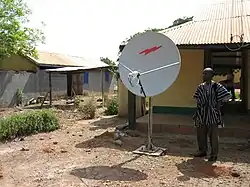
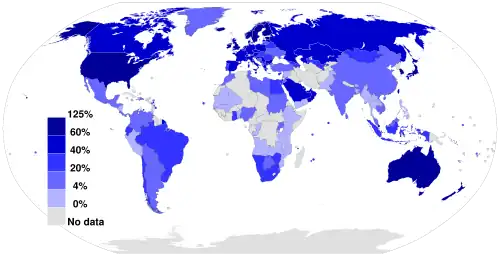
_(page_62_crop).jpg)
